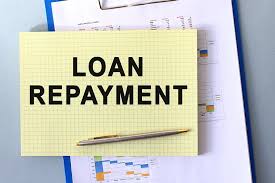Hey! Adhering to the BNM loan repayment moratorium: a concise guide for young Malaysians
BNM Loan Moratorium: A Guide for Young Malaysians Struggling with loan repayments due to COVID-19? Learn about BNM's automatic loan moratorium and how it can help you. Understand eligibility criteria, interest accrual, and credit card concerns. Get expert tips to manage your finances effectively.
FINANCES


Let's acknowledge that 2020 and 2021 have been challenging for our finances due to the impact of COVID-19.
But do not fear, colleagues! In March 2020, the government introduced several initiatives to alleviate financial strain, including a monthly allowance of RM600 during compulsory unpaid leave and the option to access EPF savings through i-Citra.
Additionally, our nation's central bank, Bank Negara Malaysia (BNM), implemented a crucial change: a loan repayment moratorium (essentially a pause in payments) for individuals experiencing financial difficulties due to the pandemic.
It initially lasted for six months from April to September 2020.
Recall the times you wished to pause loan payments?
It was somewhat similar!
The moratorium allowed you to temporarily halt loan and financing repayments (including installments) without facing any penalties.
Period!Now, circumstances have shifted somewhat since that time.
Here is a breakdown of BNM's latest loan repayment moratorium to help you determine if it is the right solution for you:
1. Automatic verification is back!
Here's the good news: starting July 7th, 2021, there will be an automatic moratorium for most individuals.
This indicates that if you hold a conventional loan or Islamic financing (such as car loans, personal loans, mortgages, etc.) and fulfill these criteria, you are approved:
The loan does not exceed 90. days in delay. 07/01/2021 (if applicable, please contact your bank at your earliest convenience!).
Loan in Malaysian Ringgit (must remain local, of course!).
This applies to individuals and SMEs (small and medium-sized enterprises).
Commercial borrowers may also seek a moratorium from their bank.
However, there is a caveat. If you have already repaid the loan on time and everything is settled, you do not need to take any action.
Just keep going!
However, if you wish to join the moratorium (for some financial relief), you must contact your bank beginning July 7th.
Don't worry, it's a straightforward process - most banks allow you to apply online, via email, or over the phone.
Pro tip: Do you have loans from multiple banks?
No need to be concerned! For guidance, simply visit the relevant one-stop shop:
Individuals: Agensi Kaunseling dan Pengurusan Kredit (AKPK)
SMEs: Small Debt Resolution Scheme (SDRS)2.
2. Please hold on; the interest is incorporated into the price.
Even though you are not required to pay a late fee during the moratorium, keep in mind that banks need to generate revenue as well.
Consequently, your loan will continue to accrue interest during this time.
This indicates that you will incur slightly higher costs over time.
The distribution is as follows:
Traditional loans: interest is calculated on the outstanding balance, which encompasses both the principal and accrued interest (combined) during the moratorium period.
Essentially, interest in interest - phew!
Islamic finance: the remaining capital continues to earn profit but is not increased (in accordance with shariah principles).
Searching for a key?
During a delay, interest/earnings will keep accumulating on your loan/financing.
This indicates that you will have a larger amount to repay in the future, either through higher monthly payments or an extended loan term (consider six months).
BNM suggests consulting with your bank to establish a suitable "practice plan" for managing accrued interest and profits.
This may result in increased monthly payments or an extended loan term once the moratorium concludes.
3. Credit card concerns? We understand.
The moratorium does not directly pertain to credit card balances.
However, here's the situation: if you have not made your minimum monthly payments in the last three months, your card issuer may automatically convert your outstanding balance into a term loan.
Essentially, they convert your credit card debt into a fixed-rate loan that you repay over a designated period (typically up to 3 years).
The interest rate on this loan is not excessively high (capped at 13% per year), but it is still a factor to consider.
The good news is that after the conversion, you can continue to use your credit card up to your remaining credit limit.
However, the converted amount is included in your credit limit and the monthly installments of the term loan.
BNM Loan Moratorium: A Guide for Young Malaysians
Struggling with loan repayments due to COVID-19? Learn about BNM's automatic loan moratorium and how it can help you. Understand eligibility criteria, interest accrual, and credit card concerns. Get expert tips to manage your finances effectively.
